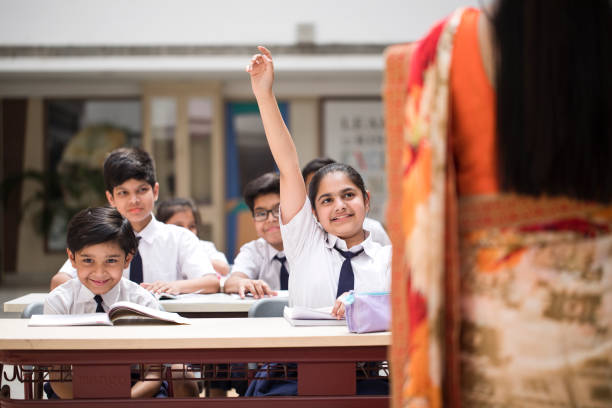National council of educational research and training has recently issued a manual dealing with instructions regarding identifying and prioritizing mental health issues among school students.

The main highlight of the panel was to set up a mental health advisory panel, a pedagogical support and a school based mental health program to ensure the psychological well being of the students and reach out to the guardians about its importance and establishing a healthy network of support around the student. This action has gained a lot of positive views and support for being the most essential step of government recognition. The NCERT has released an “early identification and intervention for mental health problems in school going children and adolescents”.
This was all based on a survey report which was released by NCERT the previous month. the manual also directed the advisory panel to demand a participation of the higher authorities and the faculty like the principal and the teachers who are the figures who interact with students the most. The manual specified the provisions to concentrate mainly on identifying any kind of leads or patterns in the students including “behavior, substance use, self harm, substance use, depression, developmental concernsIt also directed the schools to prepare a solution, first aid and proper verified referrals to ensure that the child can be ensured a proper guidance and comfortable space. The NCERT released manual has also insisted the proper training of the teachers and families to deal with a situation properly and identify the early stage of any kind of mental phase or issue. It has been mentioned as one of the most important steps to be taken by the colleges.
SURVEY

The survey conducted by the National Council of educational research on mental health and well being of school students made it clear that the Indian education ministry is ready to step up their student welfare game by paying importance to one of the most silently cruel phenomenon going on in the society. The survey included a heartfelt notice from the Indian Education Minister, Mr. Dharmendra Pradhan conveyed his well wishes to the survey team and also his gratitude towards the students who shared their “ personal, social and academic life” to help with the accuracy of the survey. The first line of the notice read, “the importance of mental health and well being especially among school going students has been acknowledged by National Education Policy”. It discussed about the Manodarpan cell which was launched under Atma Nirbhar Bharat initiative. It was through this cell and the student cooperation that the student survey became successful. In another notice from Anita Karwal, IAS officer, she mentioned, “the significance of this survey is that it provides an understanding of factors affecting mental health more as contributing to well being of students and therefore the findings have implications for efforts being made under the NEP,2020 to promote holistic development of the students”. The executive summary of the survey report read about the changing atmospheres of a child while growing up and how promotion from one phase of education to another also changes the atmosphere they were used to. The change of peers, roles and responsibilities , subject specializations, increased importance of career concerns and many more factors were read as dominant factors in changing the mental atmosphere of the child. The school, the primary caretakers and the guardian therefore had to pay attention to this aspect to maintain a holistic guidance availability and developmental atmosphere.
BACKGROUND

A research by the Indian Council of Medical Research suggests that 12-13% of students in India suffer from mental, emotional and communicative problems. Stress, anxiety, sleeping disorders and anxiety are the most common types of mental issues the students have been facing for a long time. On the other hand, UNICEF in its flagship report launched in October 5, 2021 had warned that the students would take a big blow on their mental well being as an aftereffect of Covid 19 and the associated uncertainty in the institutional environments. The organization also warned about the long lasting behavior of this mental calamity. According to a UNICEF survey only a minority of student population in India has said that it would be good to reach out for help in case of mental health problems.













